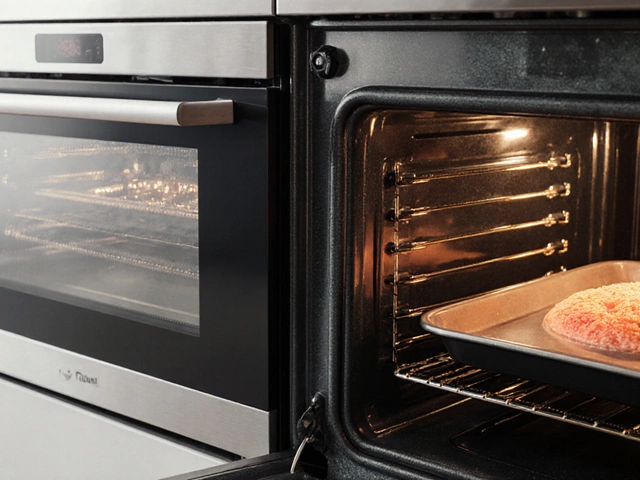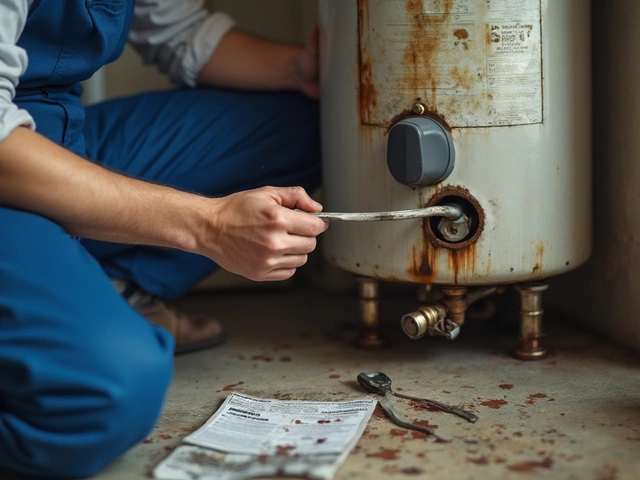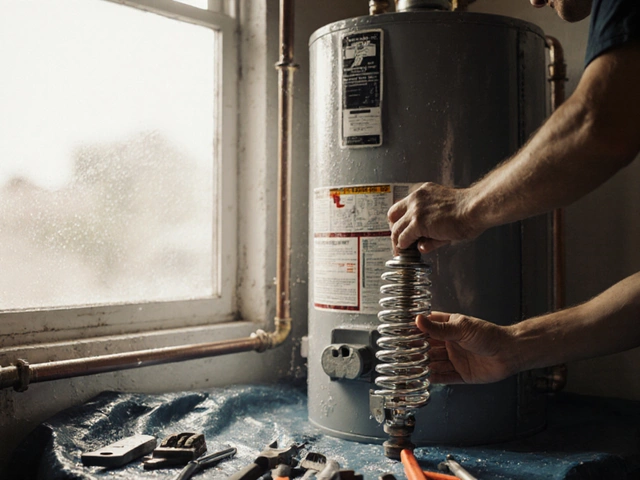Top Reliable Electric Oven Brands for Dependable Baking
January 11 2025Tech Maintenance: Real‑World Tips for Keeping Your Home Appliances Running
Got a noisy fan, a cold shower, or a boiler that’s wheezing? You’re not alone. Most households face a gadget glitch every few months, and the difference between a quick fix and a costly replacement often comes down to simple maintenance habits. Below you’ll find straight‑talk advice for the most common appliances – from kitchen extractors to water heaters – so you can decide fast whether to roll up your sleeves or call in a pro.
Know When to Clean, When to Service, and When to Replace
Cleaning is the cheapest form of maintenance, but it only works if you do it regularly. Kitchen and bathroom extractor fans, for example, collect grease and dust that choke the motor. A quick filter clean every month and a full fan wipe every six months can add years to its life. If you notice reduced airflow, a humming noise, or the fan shutting off randomly, it’s time for a deeper check – and maybe a motor replacement.
Boilers and water heaters need more than a visual check. Annual servicing catches sediment buildup, worn seals, and ignition issues before they cause a breakdown. Skipping that service can lead to higher energy bills, noisy operation, or even safety hazards. If your boiler is over 10‑15 years old, compare the cost of a new, efficient model against the growing repair bill – newer units often pay for themselves in lower running costs.
Quick Troubleshooting Steps for Common Problems
Oven not heating? First, look at the heating element. A broken element will show dark spots or a burnt smell. Swap it with a known good part or use a multimeter to test continuity. If the element’s fine, the thermostat could be at fault – a simple temperature probe check can tell you if it’s sending the right signal.
Dishwasher won’t start? Verify the door latch is fully engaged and the power cord is plugged in. A tripped breaker or a loose connection is a common oversight. If power is good, listen for the pump motor; a humming sound without water movement often means a clogged pump or a failed motor.
Heat pump losing efficiency? Check the outdoor coil for frost or dirt. Clean it with a soft brush and verify the fan spins freely. If the system still runs hot and cold cycles oddly, it could be a refrigerant leak – that’s a job for a certified technician.
For appliances like freezers and washers, keep an eye on unusual noises and vibrations. A wobbling washer usually means the feet need leveling, while a freezer that rattles might have a loose fan blade. Simple adjustments can stop the noise and prevent larger issues.
When you’re unsure, the “repair vs. replace” rule of thumb helps: if the repair costs are more than half the price of a new unit and the appliance is older than its typical lifespan, replacement often makes more sense. This guideline saves you from endless repair cycles and gives you the chance to upgrade to a more efficient model.
In a nutshell, regular cleaning, annual professional servicing, and quick DIY checks go a long way. Keep a small log of service dates, parts replaced, and any recurring symptoms – it will make future troubleshooting faster and give technicians a clear picture of what’s going on.
Remember, safety first: always turn off the power before opening any appliance, and if you ever feel unsure about electrical work, call a qualified gas engineer or electrician. With these habits in place, you’ll stretch the life of your tech, cut down on emergency calls, and keep your home running smoothly.
 6 Dec
6 Dec
Understanding Laptop Repair Costs: What You Need to Know
Repairing a laptop can range from a simple fix to a more complicated repair and knowing how much to spend is crucial. Factors such as the age of the laptop, type of damage, and repair service can affect costs significantly. This article breaks down the aspects to consider when approaching laptop repair costs and offers insights on when it's better to repair or replace. With practical tips, you'll learn how to make informed decisions and avoid being overcharged.
Read More...



